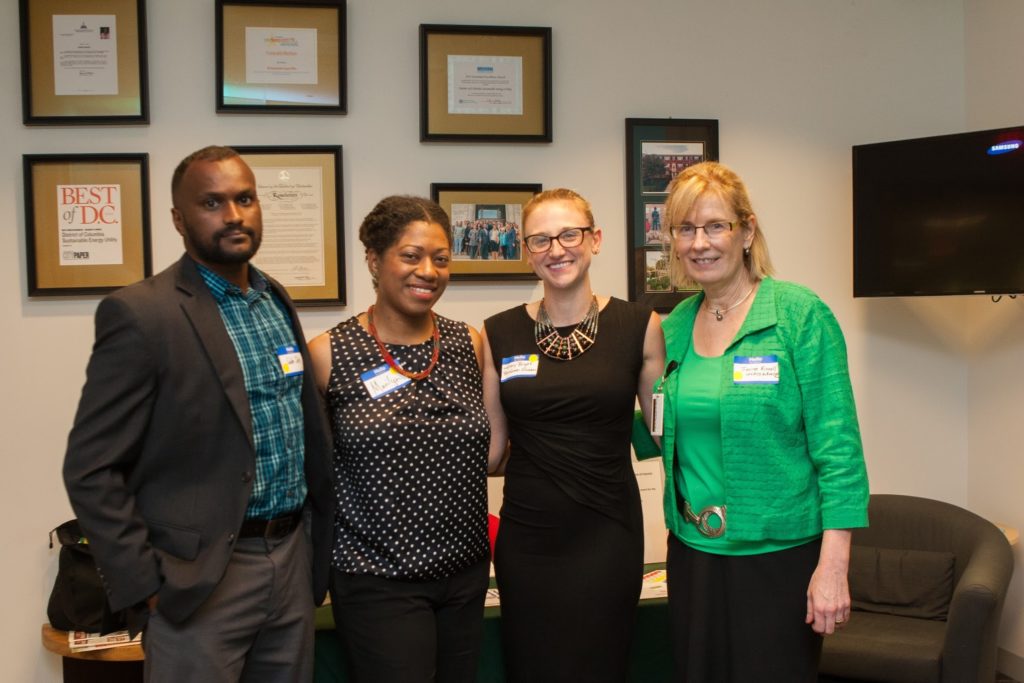
By TRAVIS HIGH
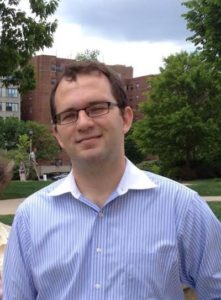 Leaders in Energy conducted its 4th annual Green Jobs Forum and Green Career Workshop on August 17, 2017. The sold-out event, with over 100 people participating, was held at the DC Sustainable Energy Utility (DCSEU) headquarters in Washington, DC.
Leaders in Energy conducted its 4th annual Green Jobs Forum and Green Career Workshop on August 17, 2017. The sold-out event, with over 100 people participating, was held at the DC Sustainable Energy Utility (DCSEU) headquarters in Washington, DC.
Rising number of green jobs
Janine Finnell, Executive Director, Leaders in Energy, opened the first panel on trends in the clean energy economy and green jobs. A 2017 report by EDF Climate Corps estimates that sustainability collectively represents 4 to 4.5 million jobs in the U.S., up from 3.4 million in 2011. Broken down by sector, the largest was energy efficiency, followed by the public sector, renewable energy, and advanced vehicles.
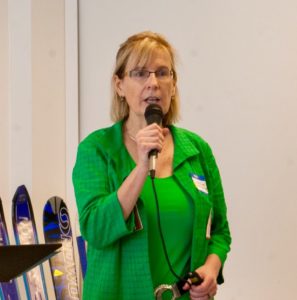
According to the U.S. Department of Energy U.S. Energy and Employment report from January 2017, 2.2 million Americans are fully or partially employed in the design, installation, and manufacture of energy efficiency products and services. The number of jobs in this sector rose by 133,000 in 2016.
In the Washington region, the Maryland Department of Commerce says the state has over 1,200 energy and sustainability businesses generating $8.3 billion in gross state product, with a good number of jobs both in the private and public sector. Hillary Bright, State Policy Director, BlueGreen Alliance, sees many opportunities in Maryland and Virginia in construction and installation of solar panels.
Bright also highlighted the new state law in Virginia on community solar projects, bringing new opportunities for growth in the green economy.
Sustainability drivers and challenges
Sustainability can be a driver for revenue generation, energy waste reduction, risk mitigation, and brand management, said Marilyn Waite, Author of Sustainability at Work, Careers that Make a Difference. She presented the SURF framework, which helps to understand how companies engage in sustainability with supply chain, end user, relationship, and future considerations in mind. Waite believes that job seekers and entrepreneurs can use this framework to understand where opportunities can be found.
A returning speaker from last year’s green jobs event, Edythe Richards, who works in organization and leadership development at the Metropolitan Washington Airports Authority, told the audience about her struggle with a recent layoff. Richards talked about dealing with the emotional impact of a shock like that. Nevertheless, she was able to quickly turn things around. In fact, she only applied to three jobs and received two offers.
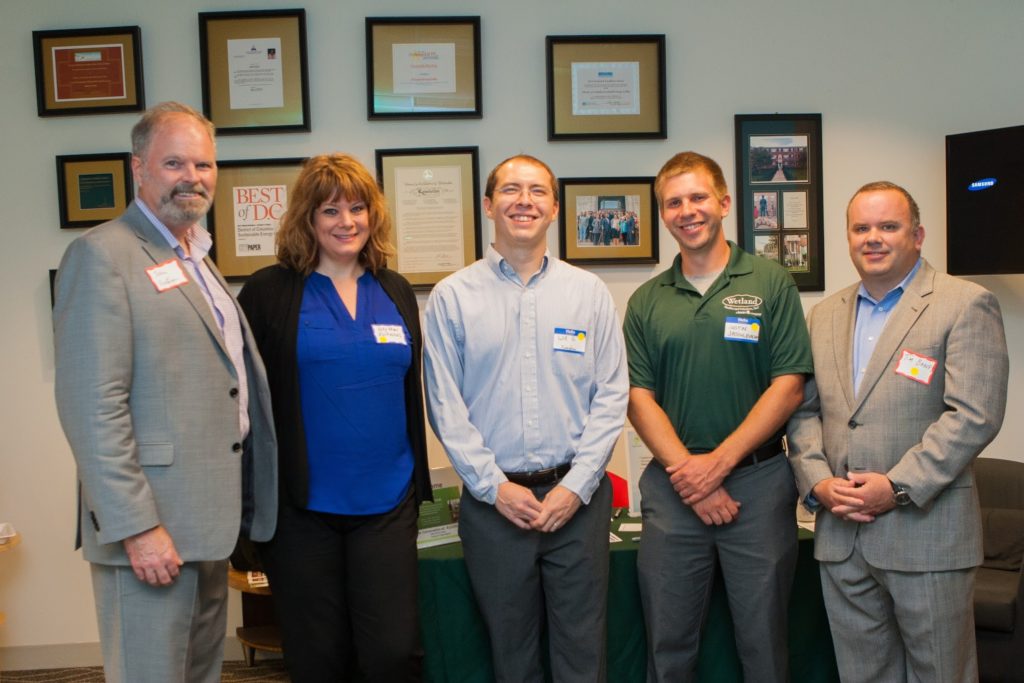
As a career counselor for many years, Richards knew a lot about the challenges people face in getting a grip on their emotions. Many people struggle with lack of opportunities, lack of relevant skills, poor understanding of how the job market has evolved, and overall emotional intelligence.
Justin Jasiulevicius echoed some of these sentiments. He now works in the environmental compliance department at Wetlands Studies and Solutions Inc., but he talked about past struggles with multiple jobs and having to “burn the midnight oil” to make it through those times.
10 tips to jumpstart your green career
- If you are really interested in sustainability, it is important to understand how resources and inputs function along the whole value chain. This according to Saleh Satti, PhD, an energy analyst who has a water background, but who is now working on energy and climate change at Constellation Energy. That being said, although Satti said he has a limited background in energy, he started as an intern at the company and was able to work his way up.
- Green tech needs to live and die with the return on investment that it promises, according to John Gaffigan, Director of Membership and Sponsorship for Leaders in Energy and moderator of the second panel. This is important to recognize, whether you join a company or create your own. Will Gathright, PhD, CEO of Tumalow Energy Storage, said he is convinced that climate change is the single largest issue and one that requires scalable solutions. However, he also said that he spends precisely 0% of his day talking about climate change. Sometimes it is better to demonstrate cost savings and avoid turning off people who are not persuaded by the science.
- Approach green jobs as no different from getting a “regular” job. Most of the job search maxims you might read that are geared toward mainstream jobseekers (e.g. build relationships and network) are equally applicable for those looking for a green job.
- Those who are looking for green jobs ought to look beyond the federal government and consider opportunities in startups, professional services, and state and local government.
- Thinking about getting a certification to boost your qualifications? Waite cautioned the audience to make sure it is specifically required by (and ideally paid for by) your company.
- Take some time to figure out what matters to you. Who are you, and how are you going to transition to your next role? Richards said that part of her success owed to having taken the time to pause and reflect.
- Be specific about your goals. What are you looking for in terms of industry/sector, job function, and personal/professional values?
- Go the extra mile and be consistent over time. Richards’ interviewers said they were impressed by her online presence. That didn’t come overnight; she spent years building it.
- Or take a lesson from Tim Bagley, Business Development Manager at WGL Energy and pivot to something new. Feeling unfulfilled with his early background, he pivoted and did contract work on Capitol Hill during deregulation, gaining valuable new experience. He also said that it is important to get comfortable with putting yourself in uncomfortable situations.
- Relationships matter. Jasiulevicius said that it is important to talk to everyone and not to sell anyone short. You never know what they can offer you, and vice versa.
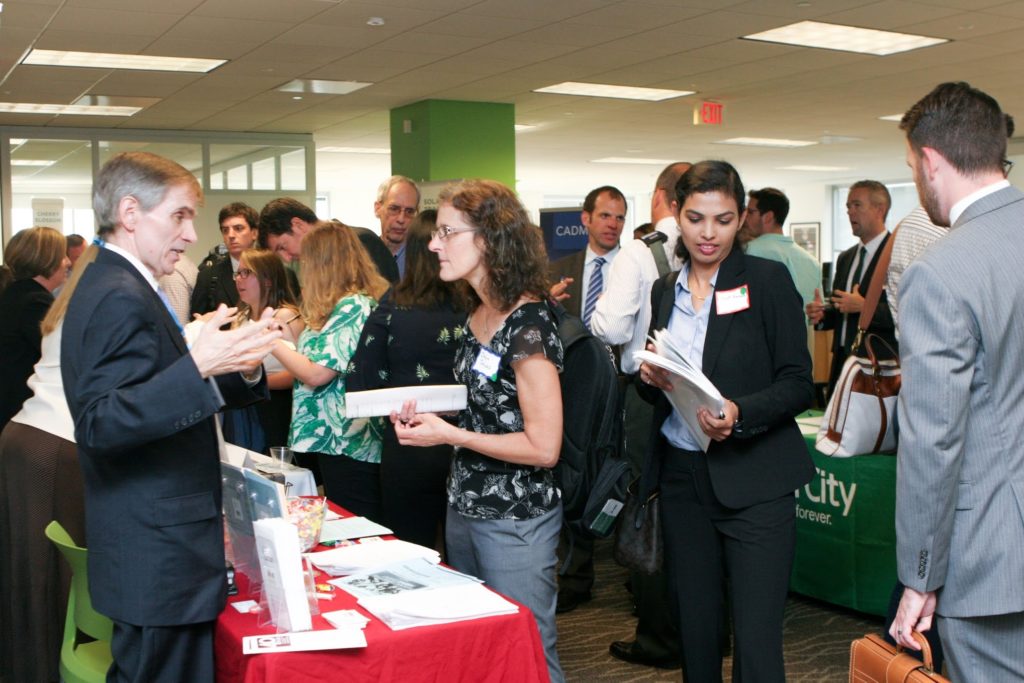
United Nations Association of the National Capital Area (UNA-NCA) was the event partner. Support was also provided by Green Leaders DC. Jobseekers had the opportunity to network with exhibitors such as DCSEU, Cadmus, GRID Alternatives Mid-Atlantic, Home Energy Medics, The Solar Foundation, Tesla, Career Confidence, and 40 Plus. Welcoming Remarks were given by Gleniss Wade, Workforce Development Program Manager at DCSEU and Kenneth Lemberg from the UNA-NCA Sustainable Development Committee.
Prior to the main event, there was a pre-event workshop to help jobseekers develop their green career plan. The sold-out workshop was led by Beth Offenbacker, PhD, HR Consultant and Coach, Waterford, Inc. There were interactive exercises designed to help participants assess themselves and their career options, create a plan, expand their skills and network, and find their next job.
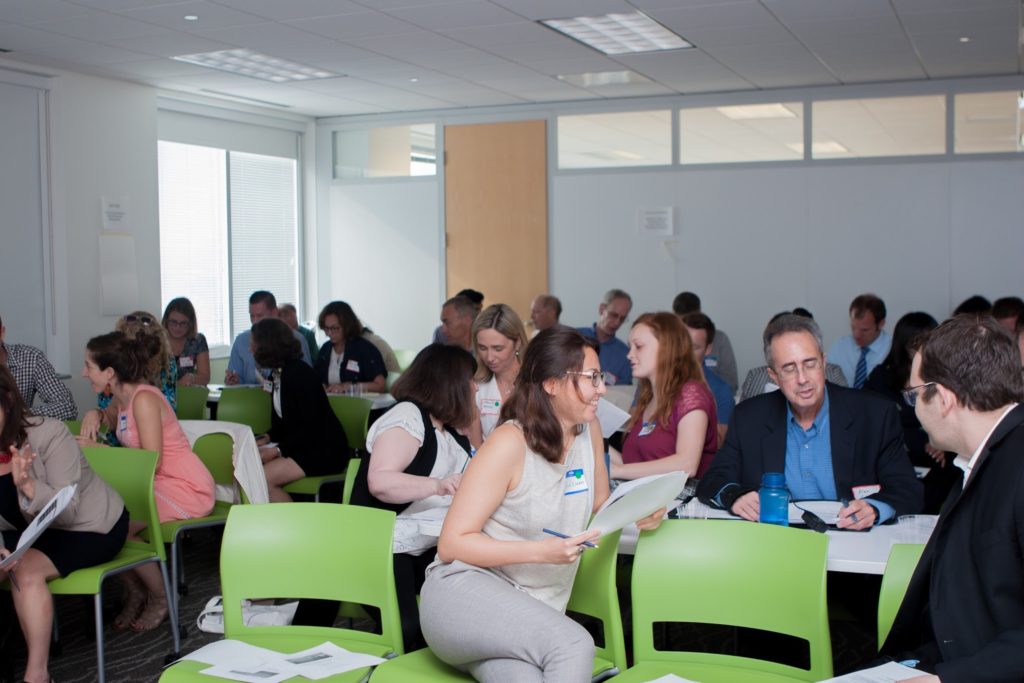 Photos courtesy Agustín Cruz, ArlingtonGreen, augie.cruz@gmail.com.
Photos courtesy Agustín Cruz, ArlingtonGreen, augie.cruz@gmail.com.
Leaders in Energy is building a community of engaged leaders to create a sustainable energy system, economy, and world. The three main pillars of engagement are green jobs, impactful leadership, and actionable solutions for sustainable communities. More information is available at https://www.leadersinenergy.org and in the Leaders in Energy Research, Communication, Policies & Analysis (LERCPA) LinkedIn group.


Leave a Reply